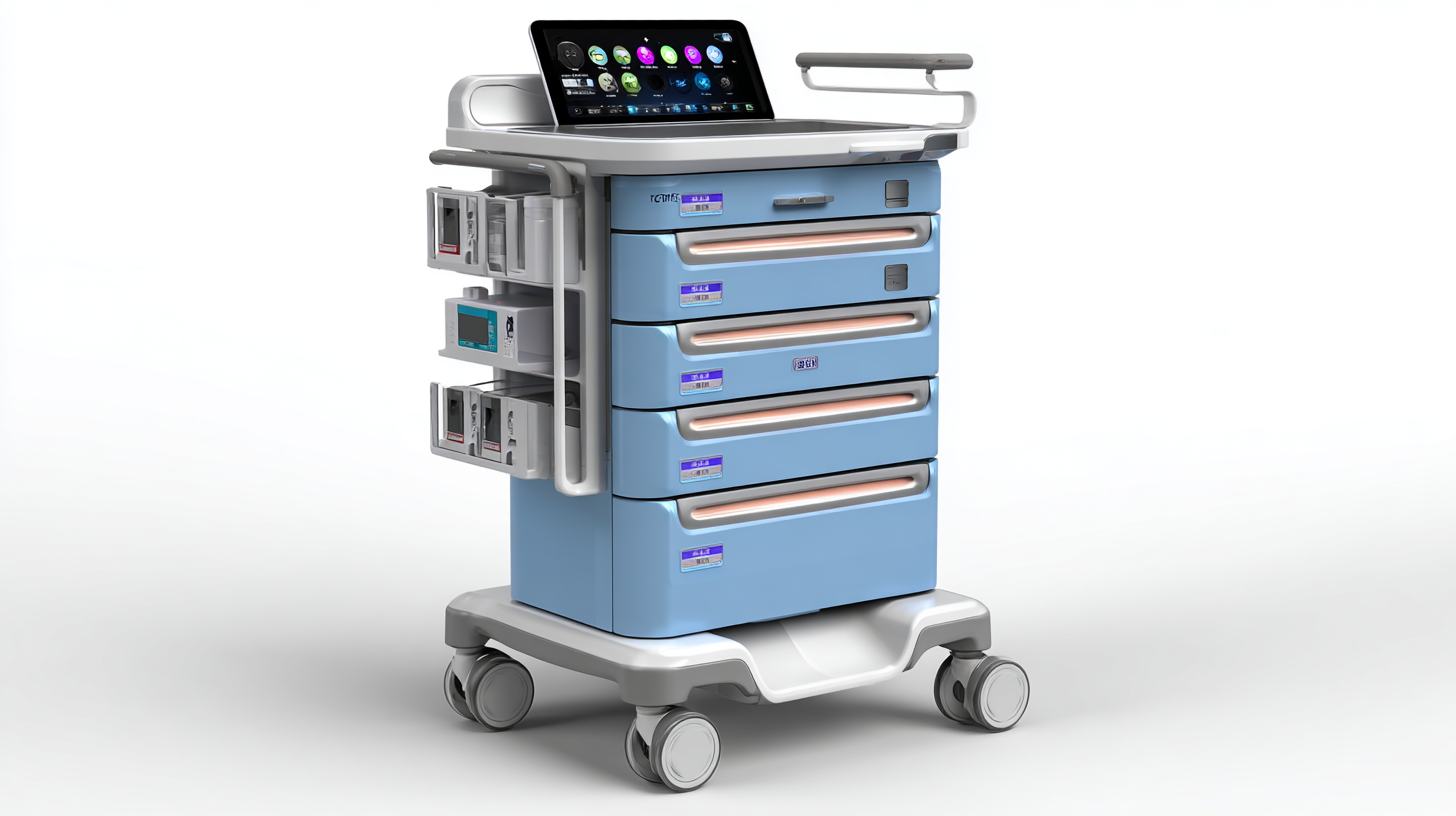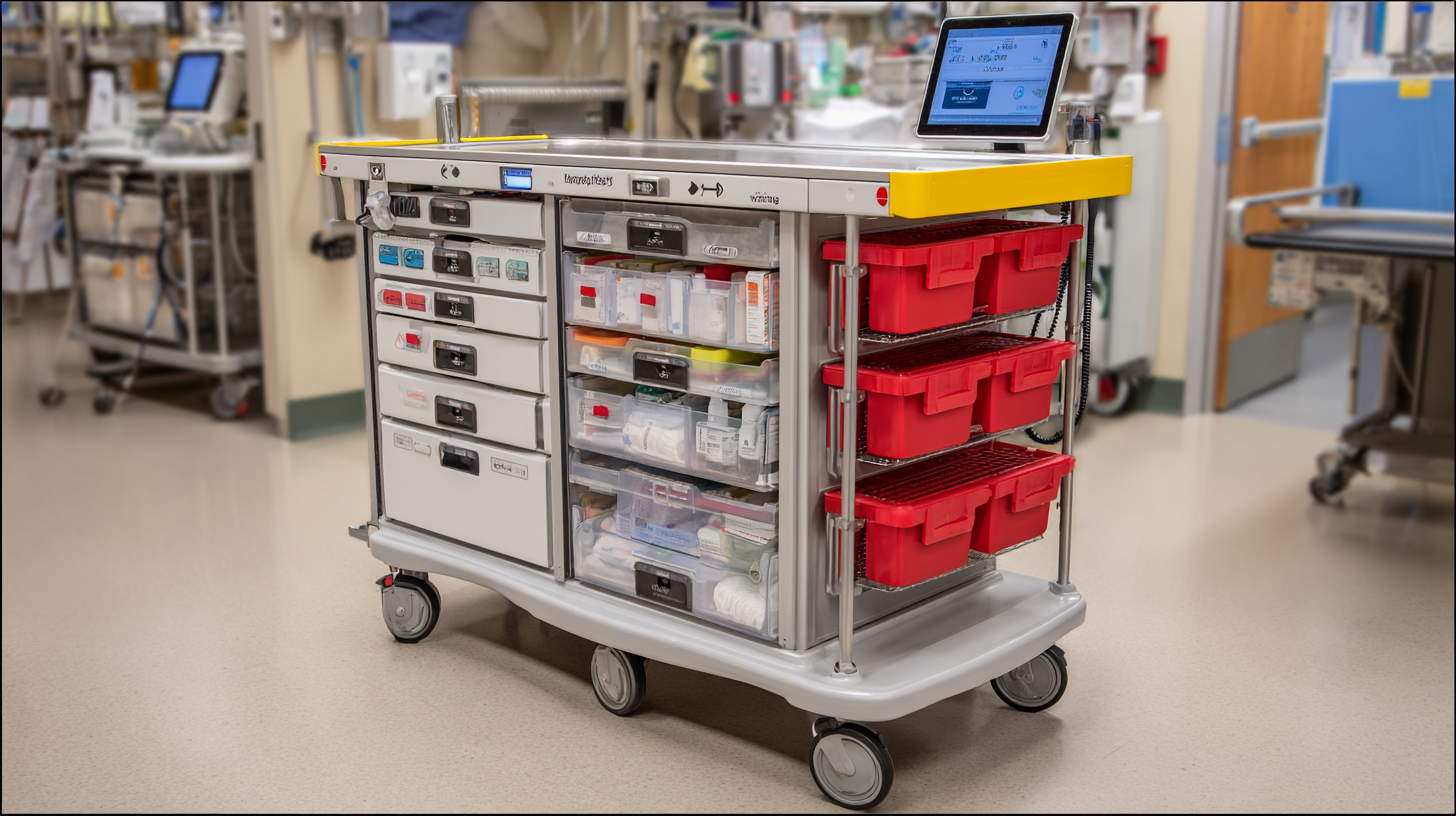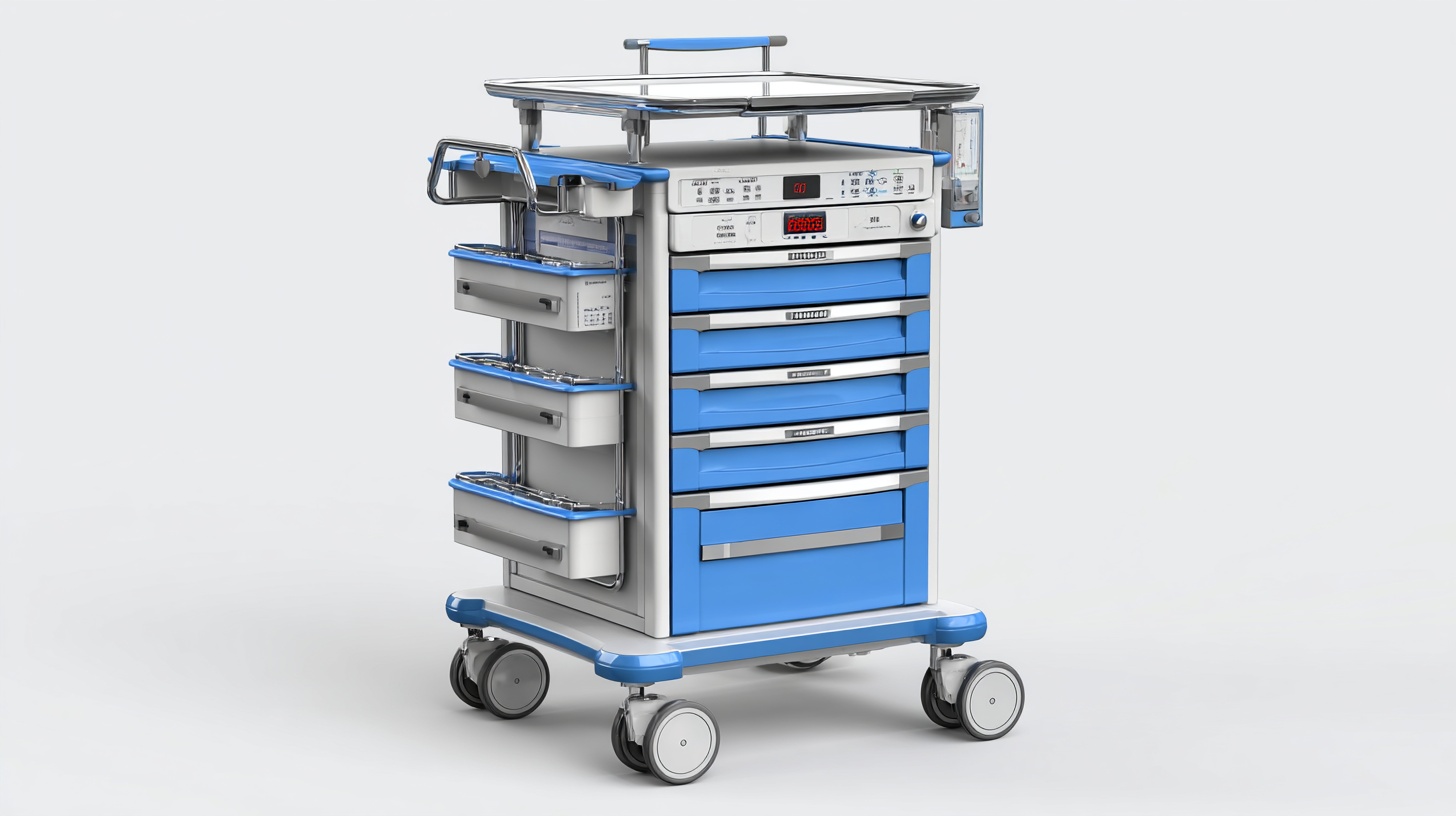How to Choose the Best Mobile Medical Cart: 5 Key Features for Enhanced Patient Care
In the rapidly evolving healthcare landscape, the importance of delivering enhanced patient care through efficient and effective medical equipment cannot be overstated. One crucial tool that has gained significant traction is the mobile medical cart, which not only facilitates easy access to medical supplies but also improves the workflow of healthcare professionals. According to a report by Grand View Research, the global market for medical carts is expected to reach approximately $2.7 billion by 2025, driven by the increasing adoption of advanced healthcare technologies and the growing need for streamlined patient management solutions. This growth underscores the necessity for healthcare facilities to choose the right mobile medical cart, as these carts can significantly impact patient care delivery. In this blog, we will explore five key features that can guide healthcare providers in selecting the best mobile medical cart to optimize their services and ultimately enhance patient care outcomes.

Essential Mobility: Understanding the Importance of Mobility in Medical Carts
In the fast-paced healthcare environment, the importance of mobility in medical carts cannot be overstated. According to a report by Research and Markets, the global mobile medical carts market is projected to reach USD 2.5 billion by 2025, highlighting a growing recognition of their role in enhancing patient care. Mobility directly impacts the efficiency of healthcare professionals, as mobile carts allow for quick access to essential medical supplies and equipment right at the patient's bedside, thereby reducing the time spent on retrieving items and increasing the time dedicated to patient interaction.

Furthermore, mobility in medical carts supports ergonomic practices that are crucial in reducing the physical strain on healthcare staff. A study published in the Journal of Occupational Medicine and Toxicology suggests that ergonomic solutions in the workplace can lead to a 25% reduction in work-related injuries. By facilitating seamless movement within healthcare facilities, mobile medical carts contribute significantly to creating a safer and more efficient working environment. Thus, understanding the essential features of mobility in medical carts is pivotal for healthcare organizations aiming to improve patient care and ensure a sustainable workforce.
Durability Matters: Choosing Robust Materials for Long-Lasting Performance
 When selecting a mobile medical cart, durability should be a top priority. A study by the American Journal of Health-care Engineering indicates that approximately 30% of medical equipment failures are attributed to poor material choices. This statistic underscores the importance of investing in carts that are made from robust, high-quality materials. Stainless steel and high-density polyethylene are two preferred options, as they not only withstand the rigors of frequent sterilization but also resist corrosion, extending the cart's lifespan significantly.
When selecting a mobile medical cart, durability should be a top priority. A study by the American Journal of Health-care Engineering indicates that approximately 30% of medical equipment failures are attributed to poor material choices. This statistic underscores the importance of investing in carts that are made from robust, high-quality materials. Stainless steel and high-density polyethylene are two preferred options, as they not only withstand the rigors of frequent sterilization but also resist corrosion, extending the cart's lifespan significantly.
Additionally, the Healthcare Purchasing News reported that durable carts can reduce lifecycle costs by up to 20%. Carts constructed with rugged materials are better equipped to handle the daily stresses of a clinical environment, from the frequent movement between departments to the inevitable bumps and scrapes. By opting for well-built carts, healthcare facilities can ensure a reliable solution that enhances patient care and supports staff efficiency, rather than needing to frequently replace subpar equipment. Investing in durability is thus more than just a choice; it’s a crucial component of providing high-quality patient care.
Ergonomic Design: Enhancing User Comfort and Efficiency in Patient Care
When selecting a mobile medical cart, ergonomic design is a critical factor that directly impacts user comfort and efficiency in patient care. An ergonomically designed cart allows healthcare professionals to maintain a healthy posture while accessing tools and supplies, reducing the risk of strain or injury during long hours of use. Features such as adjustable heights, easy-to-reach storage compartments, and smooth-rolling wheels contribute significantly to the overall usability of the cart, enabling staff to navigate their environment effortlessly.
Moreover, an emphasis on ergonomic design can enhance workflow and productivity in healthcare settings. By organizing supplies thoughtfully and providing ample workspace, these carts streamline the care process, allowing practitioners to focus on what truly matters: patient well-being. Consideration of factors like weight distribution and mobility ensures that the carts can be maneuvered easily, even in tight spaces. As healthcare continues to evolve, prioritizing ergonomic features in mobile medical carts will play a crucial role in enhancing both caregiver comfort and patient care outcomes.
Key Features of Mobile Medical Carts
Customization Options: Tailoring Mobile Medical Carts to Meet Specific Needs
When selecting a mobile medical cart, one of the most important aspects to consider is the customization options available. Mobile medical carts are not one-size-fits-all; they need to cater to the specific workflows and environments of healthcare facilities. Tailoring your cart means choosing features like adjustable shelving, specialized storage for medical supplies, and even integrated technology that fits seamlessly into your electronic health record (EHR) systems. This adaptability can significantly enhance efficiency and improve patient care by ensuring that healthcare providers have quick access to the tools they need.
Tip: Consider the most common procedures performed in your facility and choose a cart that can be configured for those specific tasks. For example, if your team frequently administers IV medications, look for carts designed with ergonomic height adjustments and built-in power outlets for easy access to electrical devices.
Another key element of customization is aesthetic appeal. Healthcare environments can be daunting for patients, so selecting carts in calming colors or with cheerful designs can contribute positively to the atmosphere. The use of branding options, such as adding your facility's logo, not only personalizes the carts but also reinforces a sense of care and professionalism.
Tip: Engage your staff in the selection process to gather insights on what custom features they would find most beneficial in their day-to-day operations. This collaborative approach fosters a sense of ownership and ensures the cart optimally supports patient care.
Technology Integration: Incorporating Modern Features for Improved Patient Management
In today's rapidly evolving healthcare landscape, technology integration in mobile medical carts is paramount for enhancing patient management. Modern mobile medical carts must incorporate advanced features such as artificial intelligence (AI) and Internet of Things (IoT) connectivity to facilitate real-time monitoring and streamlined data management. A recent study indicates that the integration of AI in healthcare can lead to a 20% improvement in operational efficiency, enabling healthcare professionals to move from reactive to proactive patient care. By embedding smart technologies within mobile medical carts, healthcare providers can ensure that they have immediate access to patient data, thus improving decision-making and overall treatment outcomes.
Furthermore, the emergence of wearable devices is revolutionizing patient care by allowing continuous health monitoring and personalized feedback. With advancements in smart device technology, healthcare practitioners can gather critical health metrics remotely, thereby enhancing transitional care from hospital to home. The potential of such integration is highlighted by reports showing that healthcare systems adopting these innovative technologies can achieve up to a 30% reduction in readmission rates. Consequently, selecting a mobile medical cart equipped with modern technology not only improves patient management but also bolsters the overall quality of care provided in various healthcare settings.
